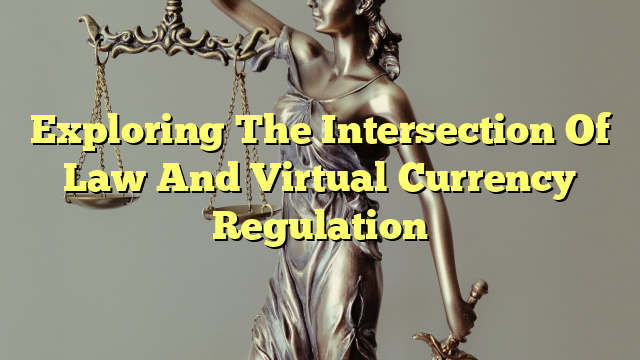Table of Contents
- How is Virtual Currency Regulated?
- What is the Legal Definition of Virtual Currency?
- What is the New Cryptocurrency Launch for 2023?
- Is Crypto Considered a Security?
How is Virtual Currency Regulated?
Virtual currency is a type of digital asset that allows for the exchange of value between parties. It is not issued by a government or central bank and is not backed by a physical asset. As such, it is considered a digital asset and is subject to regulation. The regulation of virtual currency can vary from country to country and is typically a combination of both domestic and international regulations. On the domestic level, virtual currency exchanges are often subject to anti-money laundering (AML) and know-your-customer (KYC) regulations. On the international level, virtual currency exchanges are subject to international sanctions and money laundering regulations.
In the United States, virtual currency exchanges are regulated by the Financial Crimes Enforcement Network (FinCEN). FinCEN requires virtual currency exchanges to register with them and comply with certain regulations, including AML and KYC. In addition, FinCEN requires virtual currency exchanges to report suspicious activity and any transactions involving over $10,000. This is done in an effort to protect consumers from fraud and other financial crimes.
In addition to FinCEN, the Securities and Exchange Commission (SEC) and the Commodity Futures Trading Commission (CFTC) also have the authority to regulate virtual currency. The SEC is responsible for the regulation of securities transactions, including those involving virtual currencies. The CFTC is responsible for the regulation of commodities and derivatives transactions, including those involving virtual currencies. In the United States, virtual currency is considered to be a commodity, and as such, it is subject to CFTC regulations.
What is the Legal Definition of Virtual Currency?
The legal definition of virtual currency is still being determined in the United States and many other countries. Generally speaking, virtual currency is defined as a digital asset that is issued and controlled by its developers and is used as a medium of exchange. It is not usually backed by any physical asset or government. Virtual currency is also not typically recognized as legal tender, although some countries have taken steps to recognize certain virtual currencies as legal tender.
In addition to the definition of virtual currency, there has been a push to create legal frameworks for virtual currency. This includes both domestic and international regulations, as well as the creation of virtual currency-specific organizations and initiatives. For example, the Financial Action Task Force on Money Laundering (FATF) is a global organization that was created to combat money laundering and terrorist financing. The FATF has developed guidance on virtual currency regulation and has recommended that countries adopt measures to prevent, detect, and fight money laundering and terrorist financing involving virtual currency.
What is the New Cryptocurrency Launch for 2023?
The new cryptocurrency launch for 2023 is a project known as the Libra Project. It is an open-source, decentralized platform that is designed to facilitate frictionless transactions. The project is being developed by a consortium of organizations, including Facebook, Amazon, Visa, Mastercard, PayPal, and Uber. The Libra Project is designed to make it easier for people to send money to each other, without the need for a bank or other financial institution.
The Libra Project is the first major virtual currency to be backed by a basket of real-world fiat currencies. This makes it attractive to investors as it provides more stability than traditional cryptocurrencies, such as Bitcoin. The Libra Project is also designed to be compatible with existing regulatory frameworks, making it easier to comply with international laws and regulations. The Libra Project is expected to launch in 2023.


The article offers insight into the complex legal field of virtual currency regulation. It would be interesting to explore the ethical implications of this type of regulation and the potential role of blockchain technology for transparency.